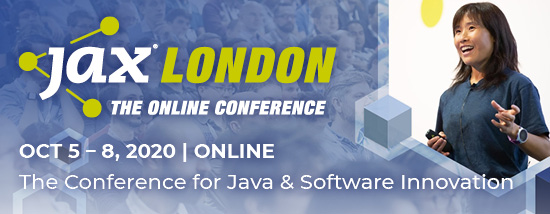A research study by The National Center for Women & Information Technology showed that “gender diversity has specific benefits in technology settings,” which could explain why tech companies have started to invest in initiatives that aim to boost the number of female applicants, recruit them in a more effective way, retain them for longer, and give them the opportunity to advance. But is it enough?
Four years ago, we launched a diversity series aimed at bringing the most inspirational and powerful women in the tech scene to your attention. Today, we’d like you to meet Stefanie Khan, Global Data Analytics Leader at Xerox.
Today’s Woman in Tech: Stefanie Khan, Global Data Analytics Leader at Xerox
 Stefanie Khan is the Global Data Analytics Leader at Xerox, a Fortune 500 company. Prior to Xerox, Stefanie led the implementation of a global reporting strategy at LORD Corporation as the Global Business Intelligence and Analytics Leader. She received her MBA in Business Administration from DeVry University.
Stefanie Khan is the Global Data Analytics Leader at Xerox, a Fortune 500 company. Prior to Xerox, Stefanie led the implementation of a global reporting strategy at LORD Corporation as the Global Business Intelligence and Analytics Leader. She received her MBA in Business Administration from DeVry University.
When did you become interested in technology?
My interest in technology was innate and began at a very early age. From the first Discman to dial-up Internet and cutting-edge 1994 Microsoft Plus! computers in elementary school, I was always the student in class with the latest technology.
I was submitting typewritten essays to my teachers in the fifth grade while my classmates were still turning in handwritten papers and I used PowerPoint, which was new technology at the time, to deliver a class presentation. You could call me an early adopter.
How did you end up in your career path?
As a child, I knew I wanted to do something with computers, but I didn’t know what. Growing up at the forefront of technology and observing my brother design web pages in the ’90s, led me to pursue an education at DeVry University to earn my bachelor’s degree in Business Information Systems and later, my master’s in Business Administration. The skills I learned at DeVry helped me to build a career based in technology.
At the beginning of my career, I was a financial analyst for a healthcare system where I reimagined the accounts receivable reporting processes. In doing so, I saw the value of the new database come to life by cutting down the hours that medical auditors were spending on reporting.
After that, I became a global business intelligence and analytics leader at a diversified technology and manufacturing company, where I was one of few female leaders responsible for data and the reporting experience for more than 3,000 employees. Today, I am the Global Data Analytics Leader for Xerox.
I learned that I won’t be freely given an opportunity even if I am a top performer and of value. Instead, I needed to stand up and demand recognition.
Did you receive support from your family and friends? Do you have a role model?
I grew up with great support from my family. My father was an engineer for Kodak, so he was always bringing home the latest technology and would encourage me to learn how it works. Having a role model is so important in your career because you are able to picture what success could look like for yourself and are able to gain insight into overcoming challenges in your own career. Phrased another way, if you see it, you can believe it and achieve it. Representation matters, and given that I am in a male-dominated field, my role models have been mostly men, but I hope to be a woman that can guide other women in their tech careers in the future.
Did someone ever try to stop you from learning and advancing in your professional life?
Early on in my career, I saw people around me receiving raises and getting promoted, yet I felt that I had more to bring to the table than them. At the time, it felt unfair, but it became a pivotal time in my career. I learned that I won’t be freely given an opportunity even if I am a top performer and of value. Instead, I needed to stand up and demand recognition.
In a way, I was standing in my own way from advancing in my professional life because I wasn’t asking for what I wanted, which was recognition and promotion. Once I gained my confidence and voiced my opinion on my worth, people paid more attention.
A day in Stefanie’s life
I am currently the Global Data Analytics Leader for Xerox, a Fortune 500 company, widely known for their workplace solutions, document management and digital printing and 3D technologies. My team is responsible for digitally transforming the data, business intelligence, and analytical landscape for the entire organization.
While no day is atypical for me, most days consist of deeply strategizing solutions to various use cases throughout the organization and deploying new capabilities that both add incremental value and optimize the way we do business internally and externally.
What are you most proud of in your career?
I am most proud of consistently adding value to those around me. It’s rewarding to see the number of hours or effort in unremitting manual processes, often experienced in many people’s professional lives. These manual processes are often human-dependent, but not necessarily adding value. By overhauling the manual processes, as well as enabling new capabilities and functionalities, I’m able to directly impact employee experience. Rather than spending numerous hours completing simple and unvaluable tasks, they can redirect that effort to actually interpreting what the data means, deriving perspectives, and ultimately creating actionable insights, often impacting the bottom line.
Why aren’t there more women in tech?
One of my passions is inspiring middle-school girls to think more broadly about the day-to-day technology they use and help them understand data, artificial intelligence and machine learning. What I’ve learned is that many of the girls I speak with aren’t aware that they can be successful in an IT career. Because of this, I make it my mission to introduce technology and the diverse career options available to women in a heavily male-dominated field.
I want to ensure that other women know that technology doesn’t have to be a male-driven career path and that we do have an important role and immense value to add to the field.
Could you name a few challenges (or obstacles) women in tech face?
I think a challenge that women in tech face is that oftentimes, we are the minority group in a room, but that should be looked at as an advantage. As a woman, and a woman of color, I can share a different perspective that contributes value to the discussion. There’s also a lot of talk about the glass ceiling, which can be intimidating for someone just starting out, but I believe that the glass ceiling only exists if you let it. I have never seen a glass ceiling for myself, even though it might exist, because I know I can push past it and I believe I can achieve what I want based on the value that I add.
Everything we do has a technological component to it and it’s a lifelong learning topic with many ways to learn easily attainable tech skills.
Would our world be different if more women worked in STEM?
As a woman in tech, part of my success comes from being confident that I have a different perspective, opinion and reaction to share with my team that can create more inclusive solutions to our challenges.
I believe that women have a unique perspective on life, the world, and technology, and if there were more women in STEM the technologies and products all around us would look differently and solve different challenges.
The discussion about diversity is gaining momentum. How long will it take to see results from the current debate?
I’m not certain that there will be any tangible benefits to increased diversity, at least foreseeable or identifiable benefits. I think the benefit and impact will mostly be recognized in employee loyalty, satisfaction, and performance. And it’s not limited to gender. Other areas of diversity, such as ethnicity, age, veterans and military, can bring new perspectives based on personal experiences that may not have been considered before. I also think that diversity can boost a companies perception of belonging to its customers.
What advice (and tips) would you give to women who want a tech career?
In today’s world, technology is so broad. Everything we do has a technological component to it and it’s a lifelong learning topic with many ways to learn easily attainable tech skills. Outside of embarking on a full degree program, certificates and other short-term programs can help, too.
In the end, you need to understand what will make you happy when you wake up in the morning and craft a path to get you there.
More Women in Tech:
- Women in Tech: Hiral Patel, Founding engineer at Diamanti
- Women in Tech: Christin Matt, Senior Game Designer
- Women in Tech: Pernille Bjørn, professor & Head of Department for Research at the Department of Computer Science, University of Copenhagen, Denmark
- Women in Tech: Julia Wiencirz, Manager of the Solution Engineering Team at Applause
- Women in Tech: Cheryl Hung, VP, Ecosystem at the Cloud Native Computing Foundation
For even more Women in Tech, click here
The post Women in Tech: “I can share a different perspective that contributes value to the discussion” appeared first on JAXenter.
Source : JAXenter





















